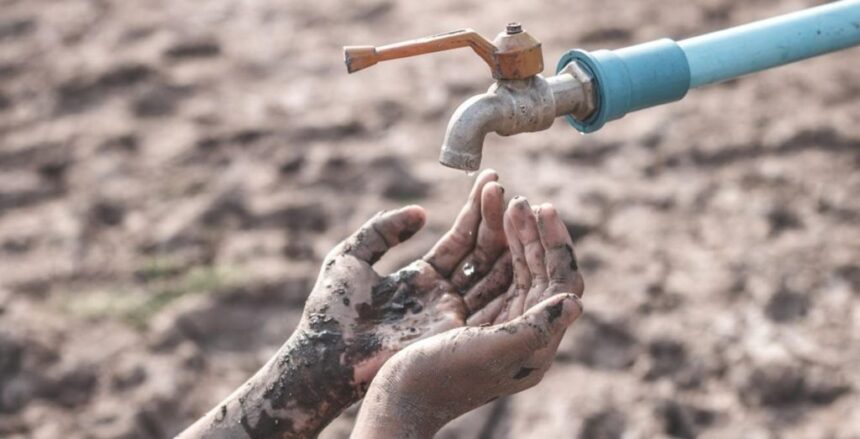A new report has delivered a scathing assessment of water infrastructure in Africa’s most populous country, highlighting corruption and deliberate underfunding by state governments as key reasons for the worsening Nigeria’s water crisis.
The report, “Dry Taps: A Damning Verdict on the State of Water Utilities in Nigeria“, was launched on March 20, 2025, ahead of this year’s World Water Day.
The study, conducted by a coalition of civil society organizations, including the Renevlyn Development Initiative (RDI), Socio-Economic Research and Development Centre (SERDEC), and the Environmental Defenders Network (EDEN), focused on six states—Kogi, Oyo, Lagos, Enugu, Edo, and Kano. The findings paint a grim picture of water crisis in these states, with public waterworks either completely shut down, severely neglected, or operating far below capacity.
Speaking at the public presentation of the report, the General Secretary of the Amalgamated Union of Public Corporations Civil Service Technical and Recreational Service Employees (AUPCTRE), Comrade Sikiru Waheed, explained that while the study covered only six out of Nigeria’s 36 states, it reflects the broader reality of water accessibility nationwide. He noted that rural communities, where 70% of Nigerians reside, have long been dependent on streams, rivers, boreholes, and private water vendors for their water needs.
Executive Director of EDEN, Barrister Chima Williams, described the findings as alarming. “The outcomes of our fact-finding visits to water utilities in Edo State and beyond are depressing. Multi-billion naira water projects are rotting away, forcing citizens to rely on unsafe water sources. It is disheartening,” he said.
Similarly, Executive Director of RDI, Comrade Philip Jakpor, linked the water crisis to rising health issues. “We need not look further to understand why Nigerians are suffering from dysentery and other waterborne diseases. Governments at all levels have abandoned their responsibility to provide clean and potable water. In every state visited, the situation is shamefully the same,” he stated.
The report highlights several key issues, including the near-total collapse of major waterworks in the sampled states, the abandonment or vandalization of mini and micro waterworks, and the low morale among public utility workers due to a lack of funding.
In Edo State, for example, the Ikpoba River Dam, once a vital source of water, has been left in disrepair, with private fish ponds now operating in the area. The pumping facility, which once supplied over 90 million gallons of water daily, is now non-functional.
Similar scenarios were reported in Lagos, Kano, Kogi, Enugu, and Oyo states. The CSOs behind the report have called for an urgent state of emergency in the water sector. They urged federal and state governments to ensure broad public participation in water policy formulation and to investigate the billions of naira borrowed for failed water projects. Strengthening public accountability in the management of water resources is also among their key recommendations.
With the growing demand for clean water, stakeholders are now urging authorities to take immediate action to prevent further deterioration of Nigeria’s water infrastructure and avert a full-blown crisis.





